This post was originally published on Huffington Post for Father's Day.
When I learned we were going to have twins, I knew my journey as a father would be a little different. As if to prove the point, our boys arrived ten weeks early and spent over two months in NICU. While there, M developed a protein allergy that caused a life-threatening perforation in his intestines. Two weeks after C came home, all his systems shut down and I had to revive him with CPR. And there we were, in our apartment, two frightened parents with two tiny babies attached to heart monitors.
Yet this was just the beginning of our medical odyssey: C developed a very rare pediatric lung disease, and has spent the majority of his life with an oxygen tube slithering down the back of his shirt and trailing behind him. Then, when he was two years old, he was diagnosed with autism.
This last bit — autism — has proven to be the most challenging experience of all. It has also proven to be the most rewarding and the most enlightening.
Here are some of the things I've learned about fatherhood now that I have a boy with autism:
Worrying what other people think is a waste of time.
Before becoming a father I worried too much about the opinions of others. Then I went out in public wearing a backpack carrying an oxygen tank attached to my son's nose via a long plastic tube. Add to this picture standard toddler tantrums and autism-fueled verbal outbursts, and suddenly I began to think of myself and my family as a veritable freak show. That feeling lasted a short time, until it dawned on me that this is my life, this is my family, and I'm damn proud of us all. No one has to walk in my shoes, nor I in theirs, so worrying what they think of me — of us — is pointless.
what-1
My child is more than a diagnosis.
If I told you my son had cancer, you would think of him as a boy with an illness. When it comes to developmental issues, however, there is a tendency to define the child by the condition. So while it's true that C has autism, it's not the entirety of his being: there is the boy who loves to clomp around in my shoes and laugh at his feet; there is the boy who loves to give nose kisses and hug the cats and tell us that his favorite letter is Z; and there is the three-year-old who asks us how to spell the words "elephant" and "yellow," and sees the letters "CUXW" on an electrical box and proclaims, "Sounds likes saxaphone!" These things define C just as much, if not more, than his autism.
what-2
Reality rarely matches expectations, and that's a good thing.
Like many people, I painted pretty mental pictures for myself of what I thought parenthood would be like, and those pictures didn't include pediatric lung disease, autism, oppressive medical bills, insurance hassles, battles with schools, and so on. I understood parenthood wouldn't be easy, but like most people I assumed my family and I would be spared the really bad stuff. But here's where I got lucky: all of the tough stuff happened so quickly and so early there wasn't time to worry that my pretty mental picture didn't match my unfolding reality. My wife and I went into search and rescue mode almost immediately, and have remained there ever since. Of course there are moments of desperation and rage and envy, but the truth is that our crazy life has taught me to find joy and wonder and meaning in places where the old me — the me before becoming a dad — might only have found sadness and despair. Most of all, I've come to be very grateful for my life, warts and all.
what-3
Little accomplishments mean just as much as big ones.
Just before C received his official autism diagnosis, I confided in a good friend — who also has children on the spectrum — that I was having a hard time witnessing M excel while C fell behind. I told him I was constantly comparing my boys, and then feeling guilty for making the comparison. With great confidence, he assured me that in time C’s achievements would seem just as significant as M’s more advanced ones. I've learned that my friend was right. Any parent of siblings knows it's unwise to compare them, but when one child has a developmental disability (and, in our case, is a twin), those comparisons are a doubly unfair and unhappy proposition. But now comes the twist: with a lot of therapy, time, and normal childhood development, C is now ahead of his age — and his twin — in some key areas like reading and counting.
what-4
I have a purpose.
The first time I felt like a father happened before the boys were even born: I was installing car seats, and doing so slowly, methodically, while carefully reading the instructions (not my usual m.o.). The entire time I was thinking how important it was that I get this right, that I make sure my boys are safe when they're in the car. From that point forward, the responsibility of being a dad — of caring for and protecting my boys — has colored almost every aspect of my life. With C’s health and developmental issues, that sense of purpose has been amplified. And while I have high hopes for C, reason dictates that I should prepare for the possibility that he will be dependent on me for as long as I am alive. Instead of seeming overwhelming, this immense responsibility fills me with a sense of priority and purpose I never dreamed possible.
what-6
It's okay to need support.
I have always prided myself on my ability to go it alone, but this journey — which at times seems very isolating — has taught me just how much I truly, deeply need the help and support of others. It has been quite humbling. That's why one of the most surprising aspects of this experience has been the reaction, and lack thereof, of close friends. People I believed would be there for us have faded into the background for reasons I can't quite ascertain. Perhaps our situation makes them uncomfortable; perhaps they're fearful we might need too much; or perhaps they are simply busy with their own hectic lives. Whatever the case, the sting remains. Equally surprising, however, has been the reaction of other friends — some old, some new — who have come forward to offer their support in remarkable and wondrous ways. Their acceptance of us in general, and of C in particular, has been a salvation of sorts. Never a joiner, I've come to learn the value of community and the importance of asking for help.



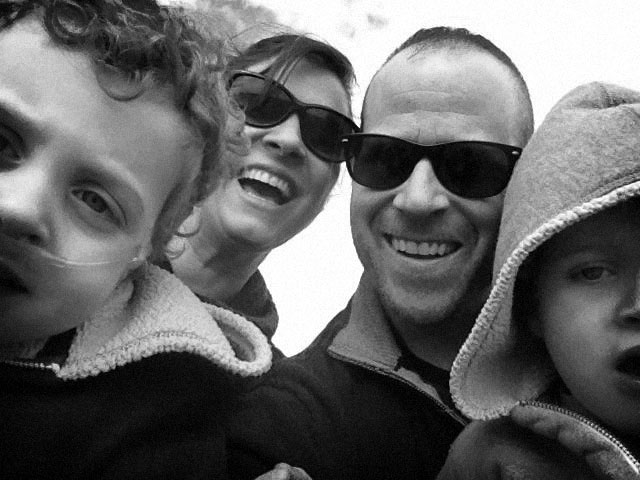


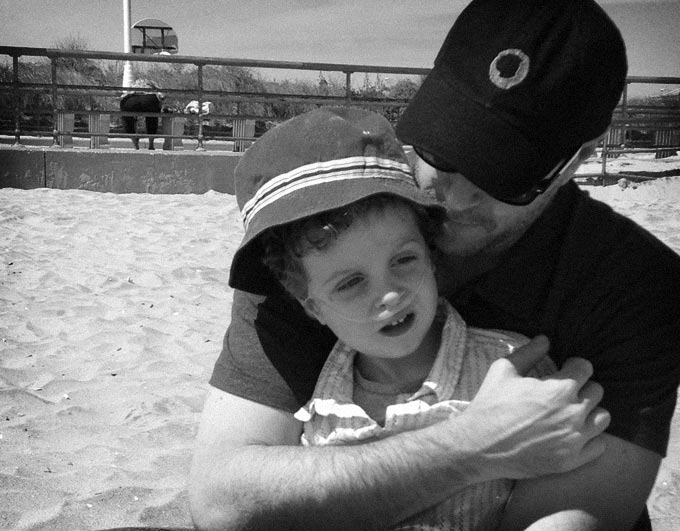
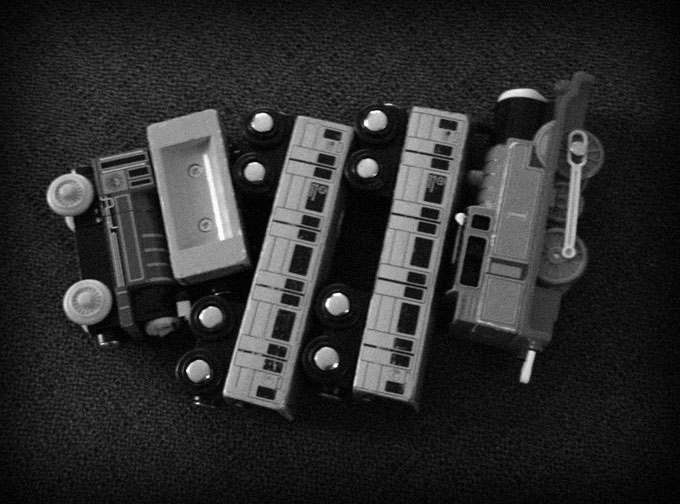
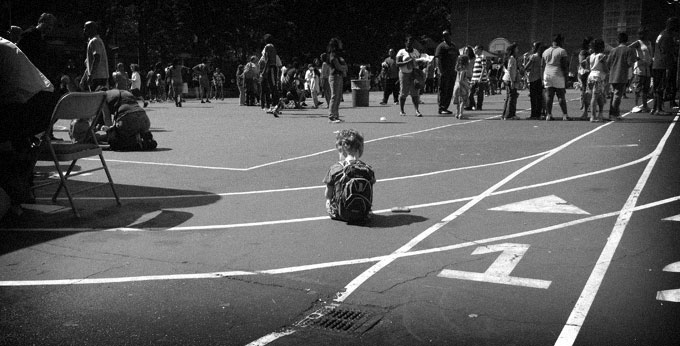
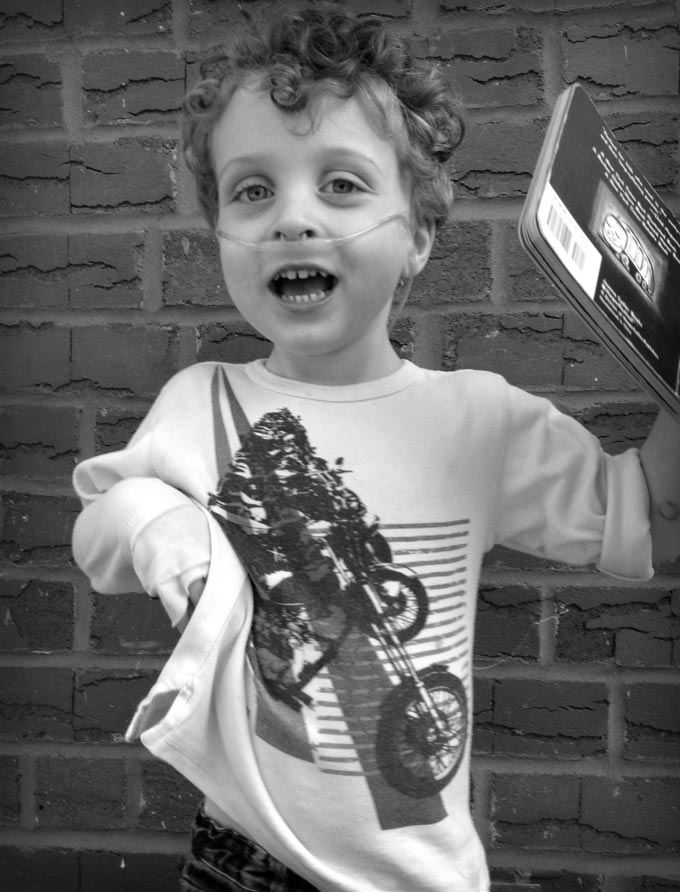
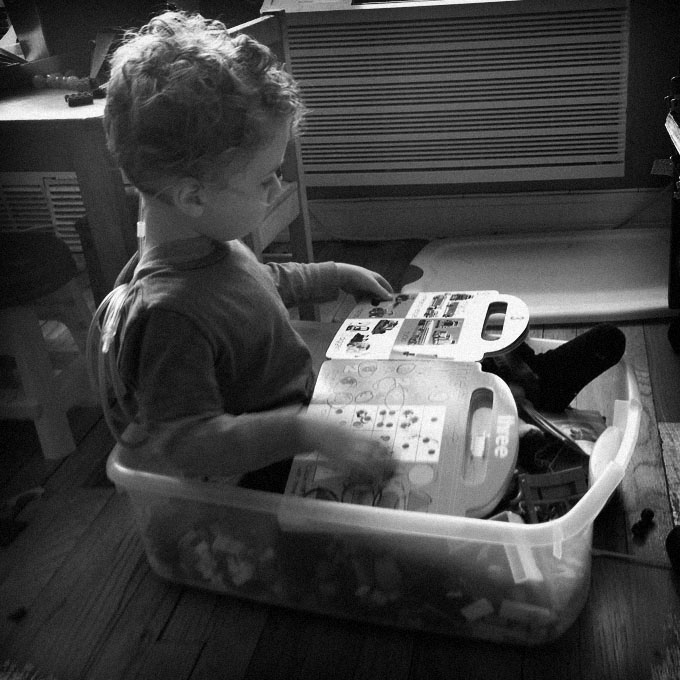 At a friend's apartment, all the kids were running and playing except for C who, in his typically unique way, found a toy box to sit atop. Why not?
At a friend's apartment, all the kids were running and playing except for C who, in his typically unique way, found a toy box to sit atop. Why not?  When I came home tonight, C was standing quietly by the window arranging his cars just so.
When I came home tonight, C was standing quietly by the window arranging his cars just so. 